Iranian Activist Sentenced To Seven Years Behind Bars
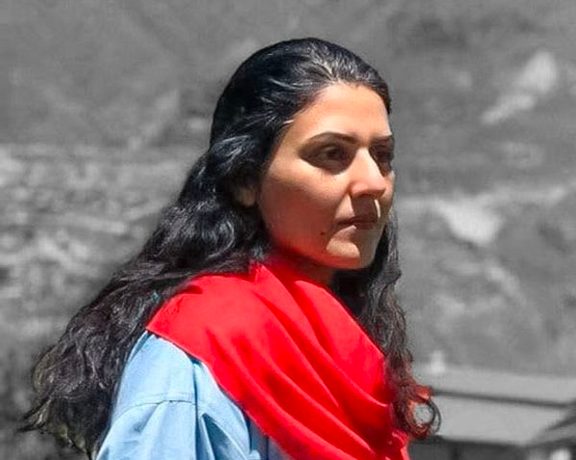
Golrokh Iraee, an Iranian civil rights activist who has been detained for 200 days, has been sentenced to seven years in prison.

Golrokh Iraee, an Iranian civil rights activist who has been detained for 200 days, has been sentenced to seven years in prison.
Iraee, a writer, accountant, political prisoner and a human rights defender has advocated passionately against the practice of stoning in Iran.
During the mass arrest of activists amidst the Mahsa Amini protests in September 2022, Iraee was arrested by security forces in her house.
She is now sentenced to six years in prison on charges of "association and collusion to commit crimes against national security" and to one year on the charge of "propaganda against the government".
The activist has also been given a two-year travel ban, a two-year ban on living in Tehran, a two-year ban on attending parties and gatherings and has had her mobile phone confiscated.
The security institutions and the judiciary have put pressure on Iraee and her family many times, saying the only way for her to be released from prison is to write a personal pardon request to Ali Khamenei, the supreme leader of the Islamic Republic.
In September 2014, Iraee and her husband were both arrested by the Revolutionary Guards after the discovery of writings about the stoning of women. Iraee was released from prison in April 2022 after enduring years of imprisonment. However, her release lasted only four months.

In an open letter to Iran’s Supreme Leader Ali Khamenei, female Islamic scholar Sedigheh Vasmaghi has strongly challenged his recent edict over hijab.
In her letter which has been widely shared through social media, Vasmaghi has warned Khamenei that he will personally be responsible for all the “financial, physical, social, ethical, psychological and political” consequences of enforcing compulsory hijab rules as he has recently demanded.
“Discarding hijab is haram (sin) based on Sharia and also politically,” Khamenei emphatically declared at a meeting with state officials on April 4 while claiming that foreign intelligence services were encouraging Iranian women to disobey mandatory hijab.
Taking their cue from the speech, officials have been competing to re-establish control over women which has somehow waned following anti-regime protests, and they made a host threats, including expulsion from universities, against hijab-less women.
Vasmaghi has argued that the strict hijab rules have no foundation in the Quran which never specified that women have to cover their hair. According to Vasmaghi, there is also no evidence that women were harassed or punished for not covering their hair and body during the lifetime of the Prophet Muhammed.
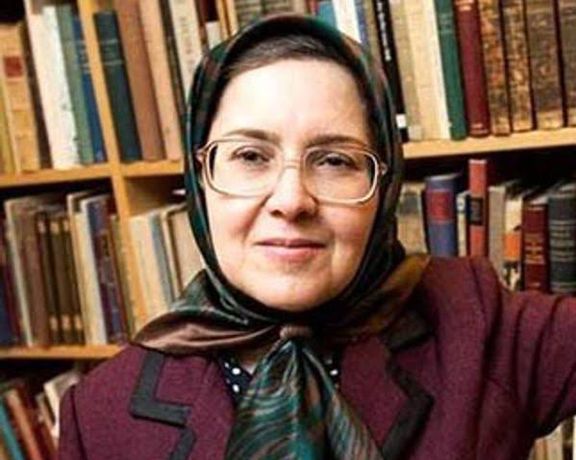
“On what specific and unbreakable religious foundations and what logic the Islamic Republic’s prescribed dress code for women, which you also approve and stress, has been based?” she wrote and asked Khamenei to elucidate his religious and political arguments for demanding enforcement of his personal views over the society.
She also argued that Sharia scholars may insist that following the model prescribed by the Islamic Republic is religiously required but there is no absolute religious basis for coercing all women to obey such edicts by using government resources and force and at the cost of violating women’s dignity, and harm to the society.
Vasmaghi who taught Fiqh, the science of ascertaining the precise terms of the Sharia (Islamic law) at Tehran University before being banned from teaching due to her political view is famous for her poetry. She left Iran in 2011 and taught Islamic studies at University of Göttingen in Germany and University of Uppsala in Sweden as a guest professor until 2017 when she returned to Iran.
Vasmaghi who used to wear a black veil for years has relaxed her own hijab in recent years and no longer covers all her hair as she used to.
Only five months after the Islamic Revolution of 1979, then leader of Iran Ayatollah Ruhollah Khomeini banned women from appearing without a veil in government offices. The ban gradually spread to the entire society within the next two years.
All women eventually gave in to covering their hair, even if partially, with headscarves and shawls and wear tunics and trousers that could be tight-fitting and/or colorful. The hardline religious and political establishment considered this level of compliance faulty and called these women ‘bad-hijab’.
Most Iranian women, however, resisted wearing the long black veil, called chador, that the hardline religious and political establishment considered as ‘the ultimate hijab’ and tried to impose by making it mandatory in some government offices and universities. Many women would wear the chador to work or school, if they absolutely had to, but would remove it as soon as they were within a safe distance.
In the past few years, however, some women began to wear their headscarves on their shoulders rather than their heads, in their private vehicles and anywhere else they could not be harassed by the police and vigilantes.
Since the death of the 22-year-old Mahsa Amini in the custody of morality police and the protests that engulfed the country for months many women have discarded their headscarves altogether and vowed never to wear it again so instead of ‘bad-hijab’ women, the Islamic Republic is now facing the phenomenon of ‘hijablessness’ as a form of civil disobedience.
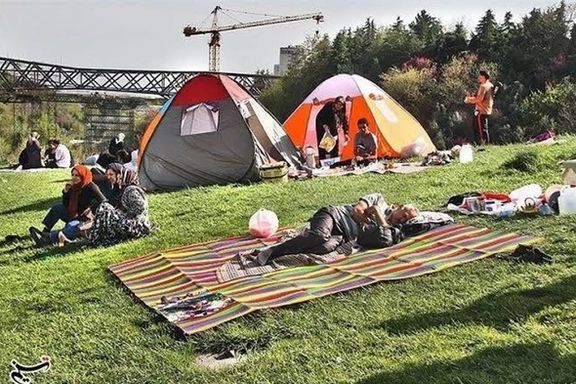
Figures from the recent Nowruz holidays reflect a widening class gap between Iran’s rich and poor.
Travelling to other cities, historic sites and seaside resorts has been very popular Nowruz activity for Iranians since the advent of modern transportation in mid-20th century.
While four- and five-star hotels remained busy during the holiday season, two- and three-star properties were vastly under their usual seasonal average.
The chairman of the Iranian Air Travel and Tourism Offices, Hormatollah Rafiei, admitted the trend reflects the economic woes of the country as it battles through some of its worst financial crises of recent history with rising costs of living and declining incomes.
"A large part of four and five-star hotels, which are more expensive, were fully booked, while two and three-star hotels, which are cheaper, remained empty,” he said this week, suggesting little impact of the crisis on the top echelons of the country's rich.
It suggests a trend of those in the middle-income brackets either not traveling or opting for more affordable options such as schools, pilgrimage centers, and municipal camps, he added.
Echoing the trend, Iran's hoteliers’ association announced a 70% drop in occupancy levels during the holidays.
While annual inflation hovers around 50 percent, prices for necessities such as food have risen much faster. Official figures published by Statistical Center of Iran show food prices rising by 70-100 percent in the past year.
As the national currency has halved in value since mid-2022, monthly salaries for ordinary people have dropped to less than $150.
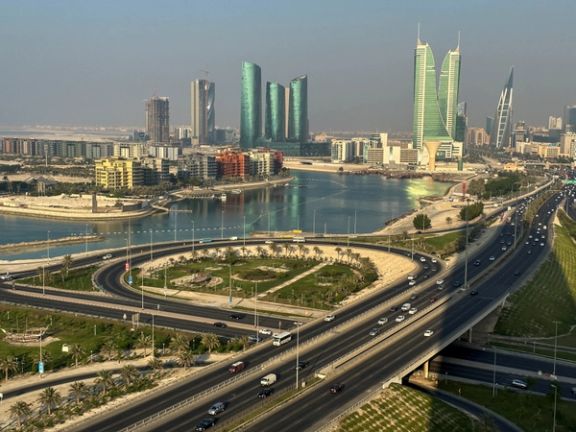
Qatar and Bahrain will resume their diplomatic ties, both Bahrain news agency (BNA) and the Qatari foreign ministry said Wednesday.
The move comes over two years after an Arab boycott of Qatar was lifted.
Saudi Arabia, the United Arab Emirates, Bahrain and Egypt in January 2021 ended a 3-1/2-year embargo of Qatar but all but Bahrain restored travel and trade links in 2021.
On Wednesday, the Bahraini-Qatari Follow-up Committee held its second meeting at the headquarters of the GCC General Secretariat in the Saudi capital where the decision was made, the two countries said in separate statements.
In January, Bahrain's crown prince spoke with Qatar's emir by telephone, in a sign the two Gulf states were moving towards repairing relations.
The row that led the quartet to cut all ties with Qatar in 2017 centered around its support for Islamist movements deemed a threat by Arab neighbors and its ties with Shi'ite Muslim power Iran and Turkey.
The four states also had their own disagreements with Qatar.
Regional heavyweight Saudi Arabia has led efforts to rebuild ties with Qatar and, along with Egypt, re-established diplomatic relations.
Bahrain, a Sunni Muslim-ruled monarchy with a restive Shi'ite population, has deep unease over Qatar's relations with Iran. Bahrain also has territorial disputes with Qatar.
Recent restoration of diplomatic ties between Saudi Arabia and Iran signaled a new policy by the leader of Persian Gulf Sunni Arab states for closer regional ties.
Reuters report
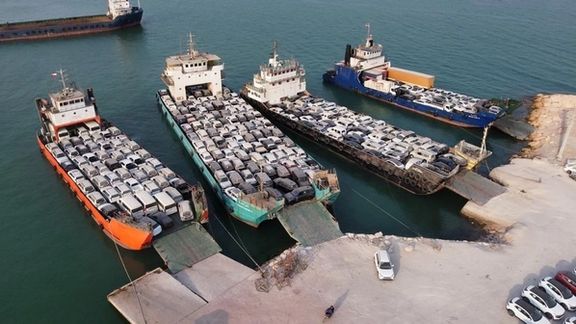
The Central Bank of Iran has blocked at least 96 trillion rials ($2 billion) in public's money in a government scheme for car pre-sales, feared as another scam.
The Islamic Republic’s Ministry of Industry, Mine and Trade announced early in March a scheme allowing people to deposit money to book the purchase of an imported car, but the list of cars and their models, the available number of cars, and even their final prices were not provided at the time.
The government promised people refunds if they opted out of buying the cars or if the number of available cars were fewer than the demand but after more than a month of waiting, people are demanding refunds, but the CBI is failing to uphold its side of the deal.
According to a report by Faraz Daily on Wednesday, the total amount of frozen money is 1.5 quadrillion rials ($3.12 billion), but the article only talks about 96 trillion rials of the prospective buyers’ money.
The scheme required those applying to opening an account containing at least five billion rials ($10,000).
The scheme involved several vague conditions such as not owning a car and as things fail to progress, many expect that like other government schemes, it was little more than a scam. In previous years, such schemes have ended with several well-connected people ending up with dozens or even hundreds of cars.

Amid public criticism and frustration over the lack of transparency about the process, the registration window closed after about a week, with over 120,000 people signing up for the plan. Finally, the names of 34,000 people were drawn, which means out of about 600 trillion rials (about $1.2 billion) of the entrants’ frozen money, only a small fraction of around 170 trillion rials ($340 million) was spent on the imported cars.
This plan was not the only scheme that the regime devised to collect people’s personal investments in the last days of the previous Iranian year – which ended on March 20. Over a week after the plan for the imported cars, the ministry announced a similar one for the pre-sale of domestically manufactured cars.
The number of cars was announced as about 500,000 and applicants were asked to block 1,000 billion rials ($2,000) to be considered for the draw. The final number of entries has not been announced but by March 19, more than 360,000 people had already registered, according to the ministry’s spokesman Omid Ghalibaf. During the past two weeks, a large number of people have been complaining on social media that despite their cancellation, the banks would not allow them to withdraw their money.
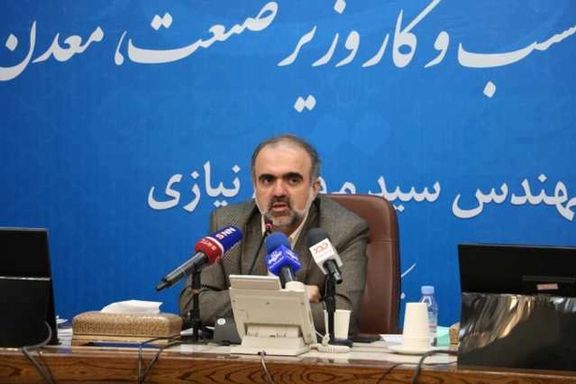
Deputy industry minister Mehdi Niazi says that the issue is communicated with the relevant banks and the regulatory body of the CBI. “Unfortunately, despite the correspondence and emphasis on the necessity of respecting people’s rights, banks refuse to release the blocked money,” he said, adding that banks blame a lack of action by the CBI to justify their move.
The prices of the cars have officially increased by 30 percent since the registration by the applicants, meaning that the participants are in for a huge loss, in an already dire economic time in Iran. A question that is circulating on social media is who will pocket the interest for the money blocked in the banks.
The Islamic Republic has a notoriously chaotic car market mired with monopolies – for manufacturing vehicles as well imports and exports – and affordability issues. Since the United States introduced ‘maximum pressure’ sanctions in 2018, threatening third parties dealing with the Iranian financial sector, Iran has struggled with imports, while European carmakers in joint projects have withdrawn. Iranian automakers are also quasi-governmental companies, benefitting from favorable borrowing and lack of competition. Some media in Iran have speculated that this vested interest might have a role in blocking approval for imports.
Earlier in April, Iranian Traffic Police said that more than 85,000 car accidents occurred during the Nowruz holidays, with about 900 people killed, one third of those, children. Between 2008 and 2018, 280,000 people died in road accidents, although there are no estimates of how many of these deaths were directly related to mechanical problems with domestic cars.
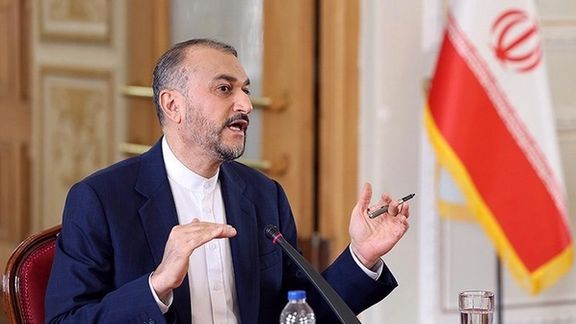
Iranian Foreign Minister Hossein Amir-Abdollahian and his Japanese counterpart Yoshimasa Hayashi have discussed bilateral relations as well as regional and international developments.
In a phone call on Wednesday, the two sides exchanged views on the development of bilateral cooperation in various fields, as well as the state of Iran’s nuclear talks with the West, Mehr news agency reported.
Amir-Abdollahian noted that Iran always considers diplomacy and negotiation as a way to resolve regional and global challenges.
Nuclear talks that began in April 2021 reached a deadlock last September, with the United States blaming Iran for unreasonable demands.
Regarding the war in Ukraine, he claimed the Islamic Republic is opposed to the war.
Iran has been supplying suicide drones and possibly other weapons to Russia, angering NATO countries.
Moscow began using the Kamikaze drones against Ukraine in early October, forcing Washington to finally say that the nuclear talks had reached an impasse.
For his part, the Japanese minister called ties between Tehran and Tokyo very important, expressing his country's stance on the process of the nuclear negotiations.
In the days leading up to Russia’s invasion of Ukraine in February 2022, negotiators in the nuclear talks were scrambling to reach the finish line, promising to successfully conclude a diplomatic process that had lasted eleven months.